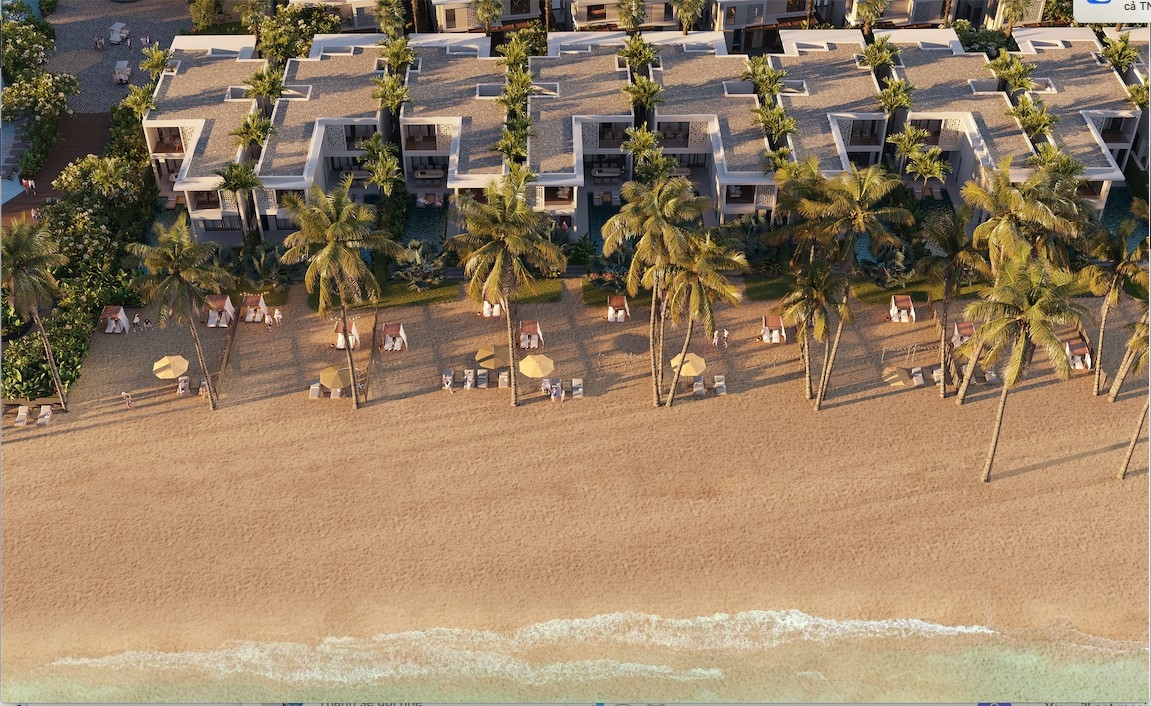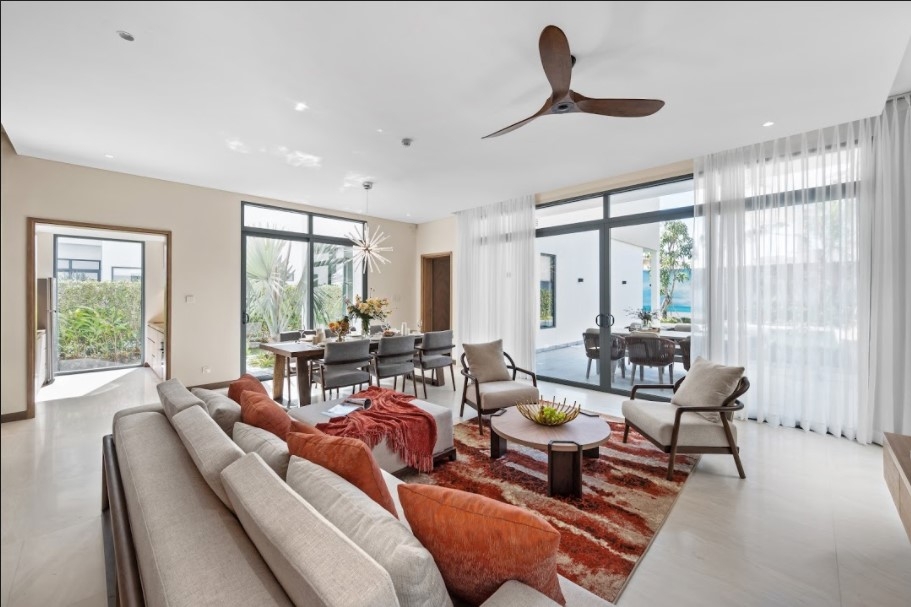Vietnam’s hospitality market large on radar of foreign buyers
 |
| The Beachfront subdivision of the Angsana Residences Ho Tram project |
Vietnam is expected to be the fourth fastest growing country with an average growth rate of 6.7 per cent in 2021-2025, according to FocusEconomics. This, coupled with upcoming reforms in property ownership, make Vietnam’s real estate market more attractive to foreign investors, especially in the hospitality segment in coastal localities. According to the Korea Wealth Report 2019 recently published by KB Financial Group Research Institute, rich South Koreans prefer Vietnam for overseas real estate investments. Around 57.1 per cent of 400 South Koreans with assets worth over a billion won ($831,000) want to invest in Vietnam.
Indeed, the opening of the hospitality market for foreign buyers will bring triple benefits to Vietnam by improving service quality, increasing capital for tourism infrastructure and encouraing travellers to return to the market. Thailand is a successful example for this strategy.
The latest report by real estate firm DKRA Vietnam shows increasing supply in the hospitality markets in Ho Chi Minh City and neighbouring provinces in the first quarter of 2021. Up to 778 resort villas at six projects came into the market in the first quarter, 3.2 times the number in the previous quarter, and 26 times as much as a year earlier. The absorption rate was 25 per cent (196 villas sold), almost twice the number from the fourth quarter of 2020.
Ba Ria-Vung Tau and Binh Thuan are the hotspots attracting hospitality investors, accounting for the majority of the market supply in the first quarter. Among them, Ba Ria-Vung Tau is highly appreciated for its close proximity to Ho Chi Minh City with developing infrastructure and the local authorities’ efforts to develop tourism.
Ba Ria-Vung Tau will prioritise investment in Ho Tram-Xuyen Moc, which features abundant natural resources with a 32km coastline crossing several landmarks such as Bung Rieng, Ho Tram, and Binh Chau. Thanks to this strategic position, most resorts in the area are built next to the coastline to enjoy the majestic natural advantages.
The highlight of Angsana Residences Ho Tram
Nested in Ho Tram area – the "new tourism capital" of the south – Angsana Residences Ho Tram is a special 5-star resort project enchanting investors with a full suite of advantages.
First is its location. Angsana Residences Ho Tram is situated right on the coastline in Ho Tram. The project features 52 villas with two views, directly facing the 280m ocean surface and the 325m Serenity stream-walk (excluding the main swimming pool for residents). Another plus point is that the legal documents for this project have been completed. All villas have finished the bare-shell construction. The model villa with full high-class interior furnishing has also been welcoming visitors since March.
 |
| The interior of Angsana Residences Ho Tram model villa |
Second, investors and holiday-goers can turn to Angsana Residences Ho Tram with great faith as it is managed and operated by the world's leading corporation, Banyan Tree Group. The Singaporean developer has made its mark in Vietnam through managing and operating Laguna Lang Co Central Resort in Hue.
Third, Angsana Residences Ho Tram will be the first project in the south to receive an environmental protection certificate from EarthCheck (Australia), the world's leading scientific benchmarking, certification, and advisory group for travel and tourism.
In fact, travellers are increasingly looking for sustainable and green travel experiences. A 2019 report from Booking.com revealed that 73 per cent of travellers intend to stay at least once in an eco-friendly or green accommodation, significantly more than the 62 per cent in 2016, with no signs of slowing down.
What the stars mean:
★ Poor ★ ★ Promising ★★★ Good ★★★★ Very good ★★★★★ Exceptional
Related Contents
Latest News
More News
- Vietnam breaks into Top 10 countries and regions for LEED outside the US (February 05, 2026 | 17:56)
- Fairmont opens first Vietnam property in Hanoi (February 04, 2026 | 16:09)
- Real estate investment trusts pivotal for long-term success (February 02, 2026 | 11:09)
- Dong Nai experiences shifting expectations and new industrial cycle (January 28, 2026 | 09:00)
- An Phat 5 Industrial Park targets ESG-driven investors in Hai Phong (January 26, 2026 | 08:30)
- Decree opens incentives for green urban development (January 24, 2026 | 11:18)
- Public investment is reshaping real estate’s role in Vietnam (January 21, 2026 | 10:04)
- Ho Chi Minh City seeks investor to revive Binh Quoi–Thanh Da project (January 19, 2026 | 11:58)
- Sun Group launches construction of Rach Chiec sports complex (January 16, 2026 | 16:17)
- CEO Group breaks ground on first industrial park in Haiphong Free Trade Zone (January 15, 2026 | 15:47)

 Tag:
Tag:



















 Mobile Version
Mobile Version